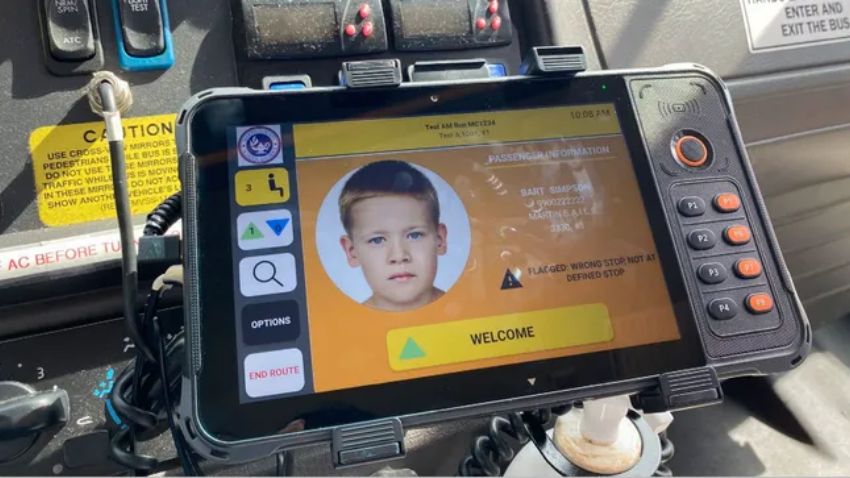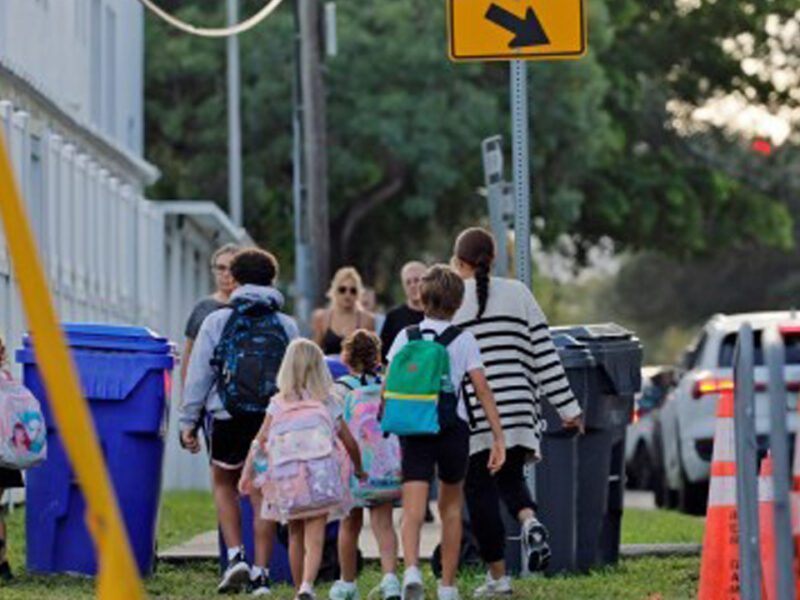
Brevard Public Schools drops millions of sales surtax, COVID-19 relief money on new tech
Florida Today | By Baiey Gallion | September 2, 2022
Thanks to COVID-19 relief money and funds from a sales surtax, Brevard Public School students are starting the new school year with more technology than ever, first in busses and hopefully — soon — in students’ hands as the district is moving closer to its goal of providing each student an electronic device such as a laptop or iPad.
Buses in particular, saw a major upgrade when they were outfitted over the summer with GPS technology, allowing parents to track when their child gets on and off the bus and keeps them updated on delays.
The contract with ReaXium is $.25 million over five years, a district spokesman said. The district did a three-week pilot program at Riviera Elementary School and Viera High School during the previous school year.
Much of this has been made possible due to COVID-19 relief money and a half-cent sales surtax voters passed in 2014 and have renewed since. The sales surtax is added to sales tax in Brevard County that funds facility and security upgrades and classroom technology.
Though some parents expressed concerns about privacy in regard to the bus GPS system, outgoing school board chair Misty Belford said the feedback has been positive.
“We get calls all the time that little Susie got on the bus to go home but hasn’t made it home,” Belford told FLORIDA TODAY. “We can now see well she swiped off the bus at this bus stop. And so it really is not our attempt at invading privacy. It’s just increasing safety.”
Belford also said the system is saving staff members time. ReaXium tracks student rider numbers so that staff don’t have to manually create rosters, and eliminates issues that arise when students get on the wrong bus or leave at the wrong stop. Students scan a badge when they get on or off the bus.
“In my years of service, I’ve gotten so many complaints about bus drivers driving too fast through the neighborhood or not turning on their lights or whatever it may be, but the GPS now allows us to track their speed so we can better address those concerns,” Belford said.
The district is also moving closer to implementing a 1:1 device policy — a policy to provide an electronic device to each student, with iPads for younger students and laptops for older students.
Belford said this year, that policy was fully implemented for middle schoolers. Over the next few years it will be implemented for all students.
The district estimates the total cost of the program would be about $18 million, and it will take years to ultimately get devices into the hands of every student. Though 1:1 device policies have become increasingly popular in school districts since the 1990s, they do come with some drawbacks; the devices are expensive to obtain and repair over time, and they increase the amount of digital screen time students are exposed to.
BPS is rolling out more devices in elementary schools and high schools to ensure all students have access to devices.
“Some of them are already there,” Bruhn said. “Others are not there quite yet.”





